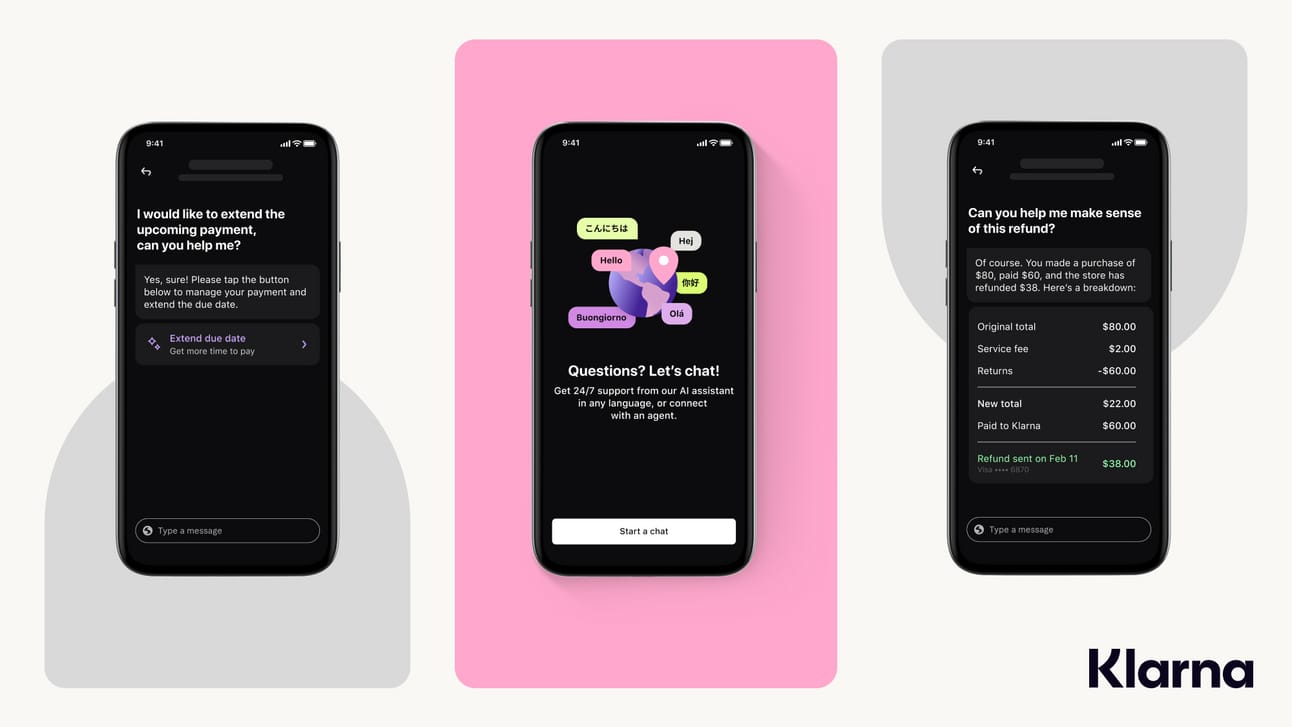- nenna.ai news
- Posts
- 📬 nenna.ai monthly newsletter - March
📬 nenna.ai monthly newsletter - March
Your nenna.ai insights
Hello nenna.ai fellows
- this is our monthly newsletter, where we wanna share more in-depth analyses of different topics that we think could be interesting for you to talk about. Of course, we also wanna share updates on nenna´s development.
TODAY´S MENU
EU AI ACT Roadmap
Nenna.ai - EU AI Act GPT
Klarna´s AI assistant
AI Worms
What else is important
EU AI ACT Roadmap
Embrace the future: Navigating the EU AI Act´s Implementation Timeline
Overview: On March 13, the EU Parliament voted on the AI Act. Described by the Parliament as the world's first law of its kind, the AI Act aims to protect the fundamental rights of citizens while promoting technical innovations. Here is the timeline:
Next steps:
Event | Time After Enactment |
|---|---|
The law comes into effect, after publishing in the journal | 20 days |
Ban on AI systems with unacceptable risks | 6 months |
Codes of conduct applied | 9 months |
Governance rules and obligations for GPAI applicable | 12 months |
EU AI Act application to AI systems begins (incl. Annex III) | 24 months, with specific exceptions |
Full application of EU AI Act for all risk categories (incl. Annex II) | 36 months, with specific exceptions |
Why is it important: The EU AI Act, seen as a pioneering step in AI regulation globally defines the rules when companies want to use AI in their processes. But companies have to act NOW. While most of the EU AI Act's regulations will come into full effect by mid-2026, companies integrating artificial intelligence into their products and services should proactively familiarize themselves with its requirements. Early compliance, especially with obligations related to the training and development of AI systems, is crucial to avoid future scrutiny and enforcement by regulatory authorities.
To give some guidance on that topic - nenna.ai created an OpenAI GPT👇
nenna´s - EU AI Act GPT
Get Answers Now: Dive into EU AI Act Regulations
In the rapidly evolving landscape of artificial intelligence, staying ahead of regulatory changes is paramount. That's where nenna.ai steps in. Introducing the EU AI ACT GPT 🤖, a tool designed to navigate the complexities of the forthcoming AI Act with ease. Our OpenAI GPT offers swift, understandable, and reliable insights into the regulatory framework. We trained them on a wide range of content to cover all aspects related to that topic.
Discover how our EU AI ACT GPT can transform your approach to compliance. Click here to learn more and stay ahead of the regulatory curve! If you have feedback, please let us know - 👩🏼💻 [email protected]
FUTURE OF AI
Revolutionizing Customer Service: Klarna´s AI Success

Source: Klarna
Summary: Klarna's AI assistant, leveraging OpenAI's technology, handled two-thirds of customer service interactions in its debut month, showcasing significant efficiency and satisfaction levels.
Details:
Managed 2.3 million conversations, equivalent to the workload of 700 full-time agents.
Improved accuracy in errand resolution, reducing repeat inquiries by 25%.
Enhanced customer experience, reducing problem resolution time from 11 minutes to under 2 minutes.
Why is that important: This achievement highlights the transformative potential of AI in customer service, delivering enhanced efficiency and customer satisfaction while promising significant financial benefits for businesses. But beware of AI services: You never know how your data will be processed.
DATA SECURITY
Secure your AI: Unveiling the Threat of Data-Stealing AI Worms 🪱

Source: t3n/ Midjourney
Overview: Researchers have developed an AI worm capable of moving through AI tools to steal data, highlighting potential security risks in large AI systems.
Details:
This new type of AI worm can spread from one system to another, stealing data or deploying malware.
It exploits text-based prompts, which are common in generative AI systems, to bypass security measures.
The creators aim to raise awareness about "bad architectural design" in AI systems and have informed Google and OpenAI about their findings.
Why is that important: This development signals a new era of cybersecurity threats, underscoring the urgent need for robust security measures in AI technologies to prevent unauthorized data access and ensure user trust. If you secure your data before using that within AI Models, this won´t be an issue for you.
NEWS
What else was important
Microsoft dismissed an AI privacy complaint as "doomsday hyperbole," facing a lawsuit over alleged privacy violations and unauthorized data harvesting with OpenAI. The dispute centers on the lack of consent for using personal data to train AI models.
Bloomberg analysis reveals that OpenAI's GPT exhibits biases in sorting resumes by names, potentially disadvantaging candidates based on race, despite efforts by companies to use AI for fairer hiring practices. This highlights the critical need for addressing automated discrimination in the rapidly advancing field of AI recruitment tools.
Microsoft's deployment of Microsoft 365 within the European Union has been found by the European Data Protection Supervisor (EDPS) to violate the EU's strict data protection laws.
NVIDIA has unveiled the Blackwell GPU B200, a major leap in AI processing power, offering significant performance enhancements for AI applications. This breakthrough GPU is designed to accelerate AI research and deployment, marking a pivotal moment for the future of AI technologies.
